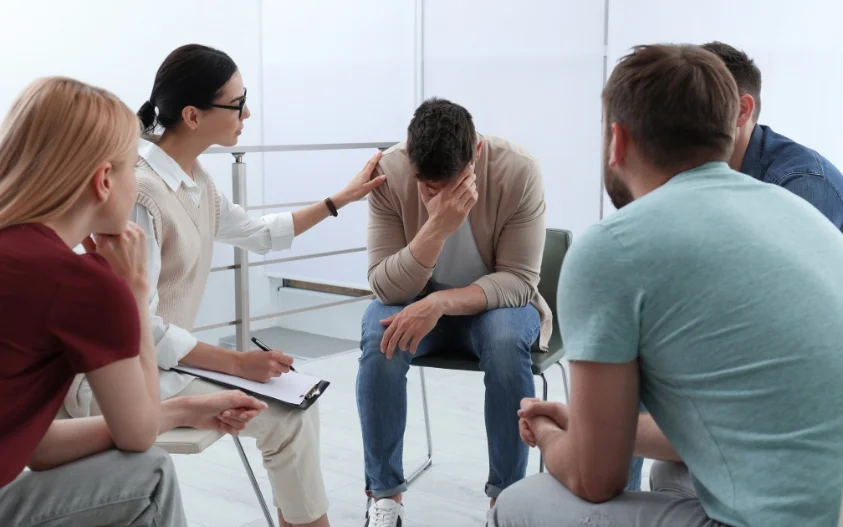24/7 Helpline:
(866) 899-111424/7 Helpline:
(866) 899-1114
Learn more about Bipolar Disorder Treatment centers in Lodi
Bipolar Disorder Treatment in Other Cities

Other Insurance Options

Anthem

Health Net

BlueShield

Holman Group

MHNNet Behavioral Health

Carleon

Regence

Self-pay options

AllWell

BlueCross

United Health Care

Coventry Health Care

Sliding scale payment assistance

WellPoint

Ceridian

Absolute Total Care

Multiplan

Ambetter

PHCS Network

Group Health Incorporated










Behavioral Healthcare
Behavioral Healthcare is a private rehab located in Lyndhurst, New Jersey. Behavioral Healthcare spe...

North Jersey Recovery Center
North Jersey Recovery Center is a private drug and alcohol addiction rehabilitation center in Fair L...

West Bergen Mental Healthcare – Ridgewood
West Bergen Mental Healthcare is a non-profit counseling clinic located in Ridgewood, NJ. West Berge...

High Focus Centers
The High Focus Centers Paramus, New Jersey location is a behavioral health outpatient center that pr...

New Pathway Counseling
New Pathway Counseling is a private rehab located in Paramus, New Jersey. New Pathway Counseling spe...

Professional Counseling Associates
Professional Counseling Associates is an outpatient treatment facility that provides substance abuse...





















































































































































































































































































































































































































































































































































The Counseling Center
The Counseling Center at Fair Lawn is an outpatient treatment center for adults and adolescents. The...

Spring House – Women’s Halfway House
Spring House – Women’s Halfway House is a private rehab located in Paramus, New Jersey. Spring House...

Adolescent Alcohol and Drug
Adolescent Alcohol and Drug is a private rehab located in Paramus, New Jersey. Adolescent Alcohol an...

Addiction Counseling Center
Addiction Counseling Center is a private rehab located in Wyckoff, New Jersey. Addiction Counseling ...

Integrative Recovery and Wellness Clinic
Integrative Recovery and Wellness Clinic is a private rehab located in Paramus, New Jersey. Integrat...

Counseling Group
Counseling Group is a private rehab located in Ridgewood, New Jersey. Counseling Group specializes i...

Specialized Therapy Associates – Fort Lee
Specialized Therapy Associates – Fort Lee is a private rehab located in Fort Lee, New Jersey. Specia...

Straight & Narrow – Monsignor Wall Social Service Center
Straight & Narrow – Monsignor Wall Social Service Center is a dedicated organization that serves the...

Renfrew Center of New Jersey
Renfrew Center of New Jersey is a private rehab located in Ridgewood, New Jersey. Renfrew Center of ...

Community Countermeasures
Community Countermeasures is a counseling clinic providing treatment for substance abuse and co-occu...

Care Plus – Fair Lawn Mental Health Center
Located in Groton, Connecticut, Care Plus is an alcohol and drug rehab facility. They offer a 13- be...

Center for Discovery Paramus
Center for Discovery Paramus is a private rehab located in Paramus, New Jersey. Center for Discovery...

Sakowitz Counseling
Sakowitz Counseling provides psychotherapy and psychological assessments. Sakowitz Counseling is loc...

Army Substance Abuse Program – ASAP
Army Substance Abuse Program – ASAP is a public rehab located in Fort Lee, Virginia. Army Substance ...































































































































































































































































































